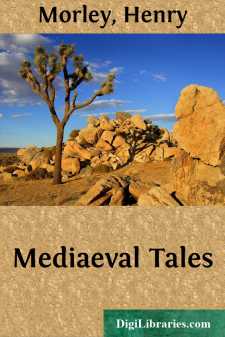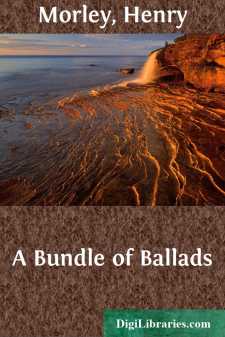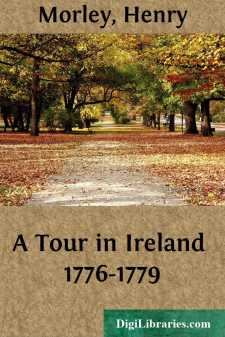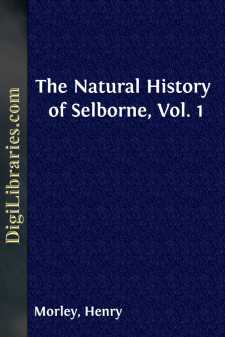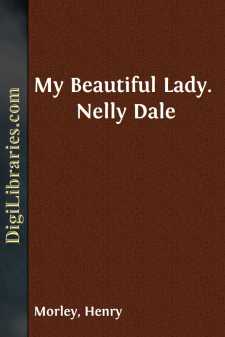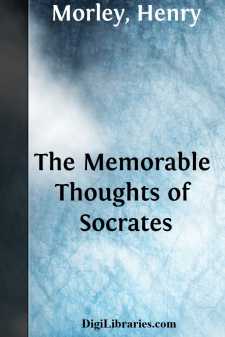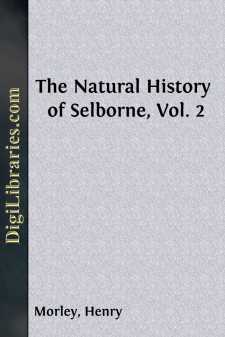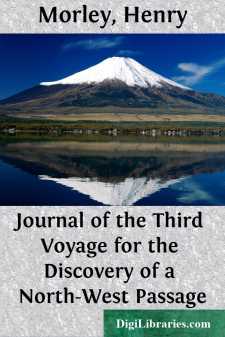Categories
- Antiques & Collectibles 13
- Architecture 36
- Art 48
- Bibles 22
- Biography & Autobiography 813
- Body, Mind & Spirit 142
- Business & Economics 28
- Children's Books 17
- Children's Fiction 14
- Computers 4
- Cooking 94
- Crafts & Hobbies 4
- Drama 346
- Education 46
- Family & Relationships 57
- Fiction 11829
- Games 19
- Gardening 17
- Health & Fitness 34
- History 1377
- House & Home 1
- Humor 147
- Juvenile Fiction 1873
- Juvenile Nonfiction 202
- Language Arts & Disciplines 88
- Law 16
- Literary Collections 686
- Literary Criticism 179
- Mathematics 13
- Medical 41
- Music 40
- Nature 179
- Non-Classifiable 1768
- Performing Arts 7
- Periodicals 1453
- Philosophy 64
- Photography 2
- Poetry 896
- Political Science 203
- Psychology 42
- Reference 154
- Religion 513
- Science 126
- Self-Help 84
- Social Science 81
- Sports & Recreation 34
- Study Aids 3
- Technology & Engineering 59
- Transportation 23
- Travel 463
- True Crime 29
Mediaeval Tales
by: Henry Morley
Categories:
Description:
Excerpt
This volume of "Mediæval Tales" is in four parts, containing severally, (1) Turpin's "History of Charles the Great and Orlando," which is an old source of Charlemagne romance; (2) Spanish Ballads, relating chiefly to the romance of Charlemagne, these being taken from the spirited translations of Spanish ballads published in 1823 by John Gibson Lockhart; (3) a selection of stories from the "Gesta Romanorum;" and (4) the old translation of the original story of Faustus, on which Marlowe founded his play, and which is the first source of the Faust legend in literature.
Turpin's "History of Charles the Great and Orlando" is given from a translation made by Thomas Rodd, and published by himself in 1812, of "Joannes Turpini Historia de Vita Caroli Magni et Rolandi." This chronicle, composed by some monk at an unknown date before the year 1122, professed to be the work of a friend and secretary of Charles the Great, Turpin, Archbishop of Rheims, who was himself present in the scenes that he describes. It was--like Geoffrey of Monmouth's nearly contemporary "History of British Kings," from which were drawn tales of Gorboduc, Lear and King Arthur—romance itself, and the source of romance in others. It is at the root of many tales of Charlemagne and Roland that reached afterwards their highest artistic expression in Ariosto's "Orlando Furioso." The tale ascribed to Turpin is of earlier date than the year 1122, because in that year Pope Calixtus II. officially declared its authenticity. But it was then probably a new invention, designed for edification, for encouragement of faith in the Church, war against infidels, and reverence to the shrine of St. James of Compostella.
The Church vouched for the authorship of Turpin, Archbishop of Rheims, "excellently skilled in sacred and profane literature, of a genius equally adapted to prose and verse; the advocate of the poor, beloved of God in his life and conversation, who often hand to hand fought the Saracens by the Emperor's side; and who flourished under Charles and his son Lewis to the year of our Lord eight hundred and thirty." But while this work gave impulse to the shaping of Charlemagne romances with Orlando (Roland) for their hero, there came to be a very general opinion that, whether the author of the book were Turpin or another, he too was a romancer. His book came, therefore, to be known as the "Magnanime Mensonge," a lie heroic and religious.
No doubt Turpin's "Vita Caroli Magni et Rolandi" was based partly on traditions current in its time. It was turned of old into French verse and prose; and even into Latin hexameters. The original work was first printed at Frankfort in 1566, in a collection of Four Chronographers—"Germanicarum Rerum." Mr. Rodd's translation, here given, was made from the copy of the original given in Spanheim's "Lives of Ecclesiastical Writers."
Publication of the songs and ballads of Spain began at Valencia in the year 1511 with a collection by Fernando del Castillo, who on his title-page professed to collect pieces "as well ancient as modern." From 1511 to 1573 there were nine editions of this "Cancionero." A later collection made between 1546 and 1550—The "Cancionero de Romances"—was made to consist wholly of ballads. A third edition of it, in 1555, is the fullest and best known. The greatest collection followed in nine parts, published separately between 1593 and 1597, at Valencia, Burgos, Toledo, Alcala, and Madrid. This formed the great collection known as the "Romancero General."
The chief hero of the Spanish Ballads is the Cid Campeador; and Robert Southey used these ballads as material for enriching the "Chronicle of the Cid," which has already been given in this Library....


